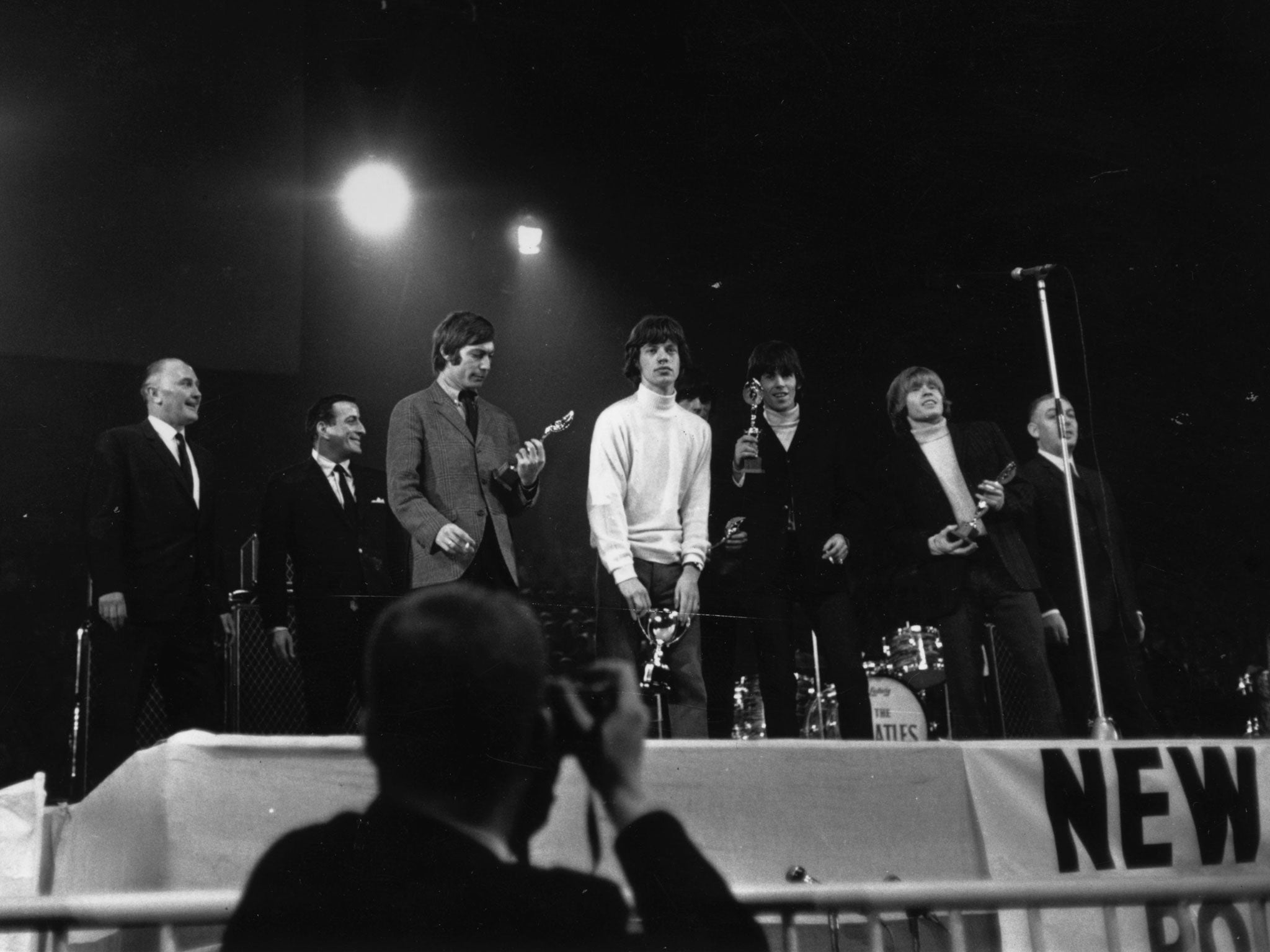When the NME was the best place in the world to be
The magazine is on its uppers, but Mark Ellen, a former writer for the publication, would rather remember the good times

Your support helps us to tell the story
From reproductive rights to climate change to Big Tech, The Independent is on the ground when the story is developing. Whether it's investigating the financials of Elon Musk's pro-Trump PAC or producing our latest documentary, 'The A Word', which shines a light on the American women fighting for reproductive rights, we know how important it is to parse out the facts from the messaging.
At such a critical moment in US history, we need reporters on the ground. Your donation allows us to keep sending journalists to speak to both sides of the story.
The Independent is trusted by Americans across the entire political spectrum. And unlike many other quality news outlets, we choose not to lock Americans out of our reporting and analysis with paywalls. We believe quality journalism should be available to everyone, paid for by those who can afford it.
Your support makes all the difference.There’s no greater moment in publishing than when the trade winds are behind you – the more adventurous your editorial, the more copies you sell. And there’s no more soul-shrivelling sensation – a real wading-through-treacle nightmare – than those bleak times when nothing you print seems to halt the decline.
Like many titles, the NME is under pressure. Britain’s last-remaining weekly music magazine, the champion of new bands for generations, has just denied reports of staff discussions about plans to become a free publication as its circulation nears the 15,000 mark and threatens its value to the industry – and its existence.
I feel for the NME. I feel for them deeply. We’ve all been there.
At the end of my decade editing The Word magazine I had to accept that, in 2012, if I put any act on the cover that wasn’t one of our Big Six – Dylan, Beatles, Morrissey, Floyd, Tom Waits, Joni Mitchell – the sales would automatically dip. And I’d think back to my NME days in the late Seventies when you could lead with a virtual unknown and the whole readership would take that risk along with you. The Cramps on the cover? Pere Ubu? Stiff Little Fingers? Two hundred and fifty thousand souls still cheerfully bought a copy – and then lent it to three of their mates. A grand total of a million readers a week.
But they were a million readers with one key thing in common: they were under-served. Music was expensive and hard to find. You were starved of information about it and waited patiently for the next precious instalment of news, reviews, interviews and pictures to be doled out by the weekly press. One of the many thrills about the NME as a teenager was discovering what the bands I’d heard on the radio actually looked like. And I was lucky to be under-served: my hunger for music and its mythology had an edge of desperation which made me appreciate it so much that it’s still unforgettable.
When the internet finally kicked in with its fan sites, illegal file-shares and free reviews, the great commercial engines of the music press began to falter. These days any over-served potential NME reader can bombard themselves with news of those they admire – often direct from the act in question – and can gorge on YouTube and exhaust their interest in a matter of hours. And is music really tribal any more? Does it have that sense of gang identity the NME encouraged and reflected? Are you any more defined by the bands you like as by the people you follow on Twitter? Even in the Eighties and Nineties readers were largely obsessed with the present – they liked The Smiths, New Order and The Housemartins, or they liked Pulp, Blur and Supergrass – but now the availability of the past means they might like Kasabian or Ed Sheeran as much as Lou Reed or Simon & Garfunkel. How impossibly hard it must be to produce a weekly title that satisfies those needs and interests. These days the NME is just another humble service-provider in a shrinking marketplace, unlikely to be driven by delusions of grandeur.
Which wasn’t the case in 1977, believe me. Back then the office was patrolled by quixotic firebrands and towering egomaniacs drunk on their own power and ubiquity. And you could see why: they had enormous influence. If Nick Kent penned a despatch declaring Marquee Moon by Television a masterpiece – which it was – then great swathes of the populace would believe him and buy a copy. If Charles Shaar Murray leant from the battlements to tip chamber-pots upon old lags like Rod Stewart or Bryan Ferry – a hand-rubbing, impish ritual known as ‘barbecuing the dinosaurs’ – then a million people felt inclined to laugh at them too.

The NME could do no wrong and expressed that confidence by machine-gunning the past to build a bright new future, as if you had to clear some space, as if you couldn’t extol the virtues of Crispy Ambulance or Rip Rig + Panic without first dropping a nuclear bomb on Thin Lizzy and Blue Öyster Cult. Hacks would stumble from the windowless ‘reviews room’, herb-scented smoke billowing behind them, to announce that A Certain Ratio were poised to save the planet or to try to recruit a lynch mob to help dance on Paul McCartney’s grave. Occasionally there’d be a heated debate and typewriters got chucked through windows but none of this bothered our publisher IPC: the NME was a massive profit-maker and, if it wasn’t broke, why fix it?
The rest of the staff took their cue from Danny Baker that this was the best job in the world bar none. There had to be worse ways to make a living than be flown to all points of the compass, installed in five-star hotels and invited to ask your heroes a series of slick and amusing questions (Baker had been fast-tracked to a writing desk after a brief stint on reception where he’d snatch a ringing phone and cackle ‘City Morgue – you stab ’em, we slab ’em!’ while Bruce Springsteen’s manager in Los Angeles wondered if he’d got the right number). As this was decades before the cold hand of the PR industry began to shut down access, you’d spend the day loafing about at Sting’s house, or going on the road with The Damned, or buying clothes with Paul Weller, or watching The Pretenders make an album – access that allowed you extraordinary insights into the people you wrote about and which the readers valued enormously. How sweet life was when the music business was brim-full of cash: I’d just arrived at the NME when I was asked if I’d like to tour America for a week with XTC. “Eat some steak, drink some beer, see the band,” the label said, “you’ll like them! Maybe write something if you feel like it.”
The NME is still courageous, funny and useful and I can’t see that it’s any better or worse than it was in my time. The difference is that we were lucky. We had the wind to our backs. Every day for them is an uphill struggle.
Join our commenting forum
Join thought-provoking conversations, follow other Independent readers and see their replies
Comments